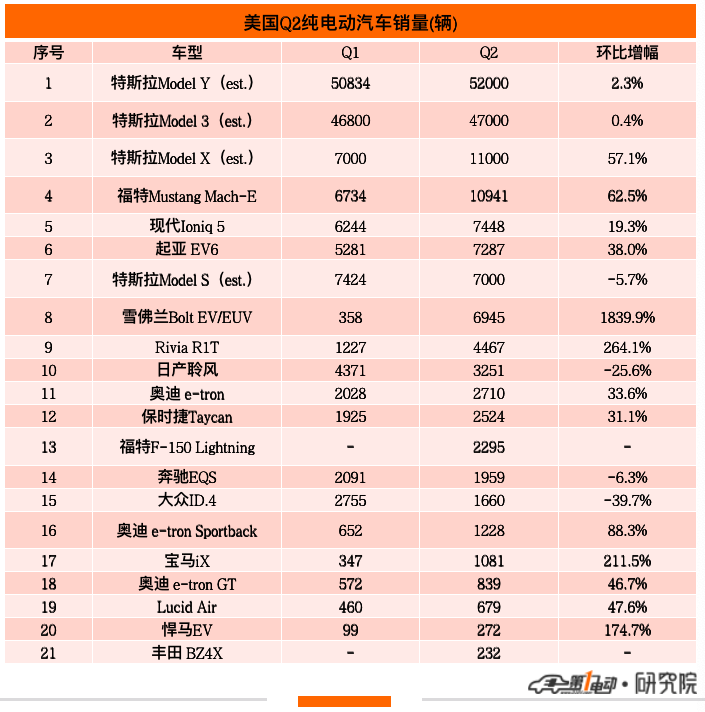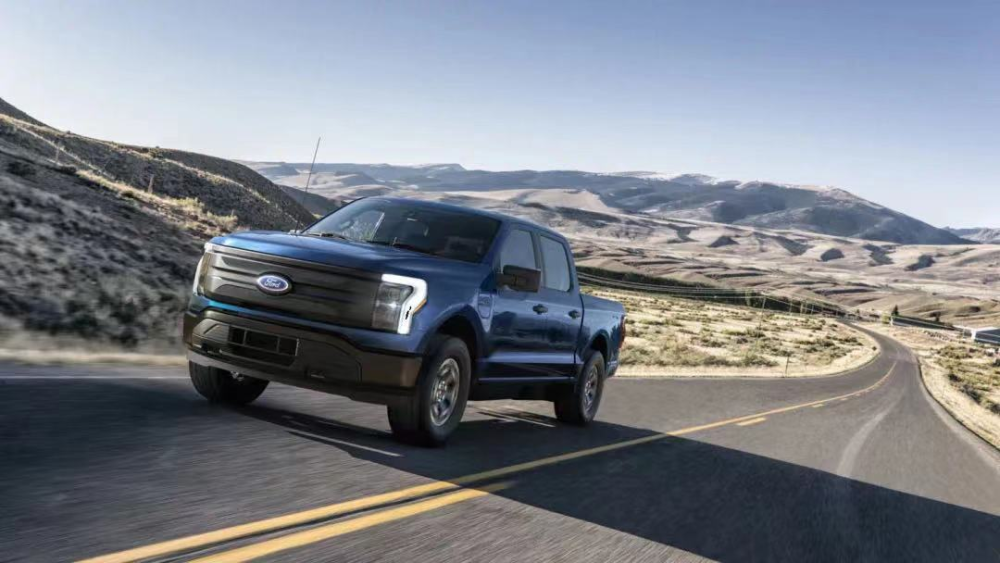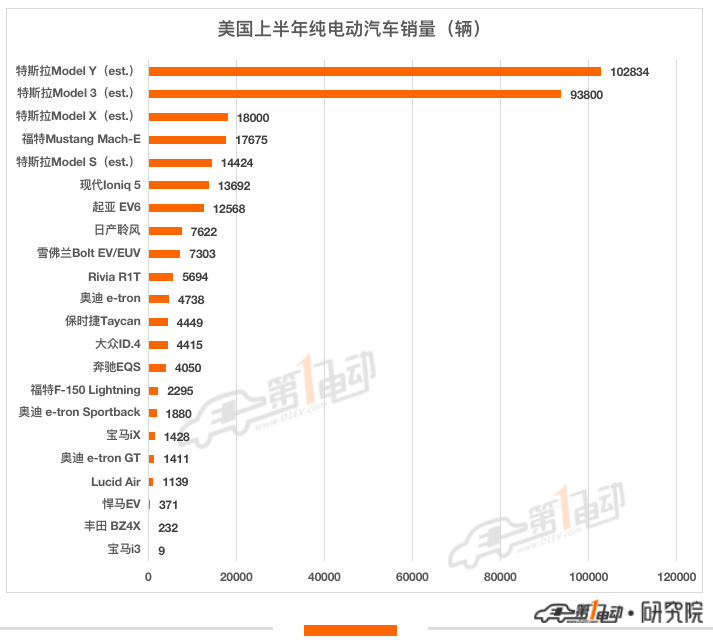Recently, CleanTechnica released the TOP21 sales of pure electric vehicles (excluding plug-in hybrids) in the U.S. Q2, with a total of 172,818 units, an increase of 17.4% from Q1. Among them, Tesla sold 112,000 units, accounting for 67.7% of the entire electric vehicle market. Tesla Model Y sold over 50,000 units and Tesla Model 3 sold over 40,000 units, far ahead.
Tesla has long held about 60-80% of the U.S. electric vehicle market. In the first half of 2022, 317,734 electric vehicles were sold in the United States, of which Tesla sold 229,000 in the first half of the year, accounting for 72% of the market.
In the first half of the year, Tesla sold 560,000 vehicles worldwide, of which nearly 300,000 vehicles were sold in China (97,182 vehicles were exported), accounting for 53.6%, and nearly 230,000 vehicles were sold in the United States, accounting for 41%. In addition to China and the United States, Tesla’s sales in Europe and other places exceeded 130,000, accounting for 23.2%.

Compared with Q1, what are the changes in the ranking of electric vehicles in the United States in Q2? The Model S, which once ranked third in Q1, dropped to seventh, Model X rose one place to third, and Ford Mustang Mach-E sold more than 10,000 units, rising one place to fourth.
At the same time, Ford began to deliver its pure electric pickup F-150 Lightning in Q2, with sales reaching 2,295 units, ranking 13th, becoming the largest “dark horse” in the US electric vehicle market. The F-150 Lightning had 200,000 pre-orders in the pre-sale phase, and Ford suspended pre-orders for the new car in April due to the high volume of orders. Ford, as the gold brand of pickups, has a rich market heritage as the basis for its high recognition. At the same time, delays such as Tesla’s repeated delays have also given Ford electric pickups more room to play.

Hyundai Ioniq 5 sold 6,244 units, up 19.3% from Q1, making it into the top five on the list. The Ioniq 5, which went official in the U.S. late last year, looks cool and futuristic, and was voted the “Best Family-Friendly Electric Vehicle” by America’s leading auto review media.
It is worth noting that Chevrolet Bolt EV/EUV sold 6,945 units, an 18-fold increase from Q1, ranking eighth. The 2022 Bolts are off to a rough start after a battery defect sparked a series of recalls and production suspensions and stop-sale orders. By April, production was back on track, and by summer, Chevrolet announced updated prices for 2023: the Bolt EV starts at $26,595, a $5,900 price cut from the 2022 model, and the Bolt EUV starts at $28,195, a $6,300 price reduction. That’s why Bolt skyrocketed in Q2.
In addition to the surge in Chevrolet Bolt EV/EUV, Rivia R1T and BMW iX both achieved over 2x growth. The Rivia R1T is a rare electric pickup on the market. The Tesla Cybertruck has repeatedly bounced the ticket. The main competitor of the R1T is basically the Ford F150 Lightning. Thanks to the R1T’s much earlier launch time, it has gained some target users.

The BMW iX was released globally in June last year, but its sales performance has not been satisfactory. With the discontinuation of the BMW i3 in Q2, BMW put all its energy on the iX, which is one of the reasons why the iX has skyrocketed. Recently, it was reported that the BMW iX5 Hydrogen hydrogen fuel cell vehicle high-performance fuel cell has started small-scale mass production at the BMW Hydrogen Technology Center in Munich. The hydrogen fuel cell vehicle will be put into use by the end of 2022, and will be tested and demonstrated globally.
Toyota’s first pure electric vehicle, the bZ4X, was officially launched in the United States on April 12. However, the bZ4X was recalled shortly after due to quality issues. On June 23, Toyota Motor officially responded to the overseas recall of bZ4X pure electric vehicles, saying that the recall is aimed at bZ4X sold in the United States, Europe, Japan and other regions because of repeated sharp turns, emergency braking and other intense operations. There is a possibility that the hub bolts of the tires are loose.
Because of this, the GAC Toyota bZ4X originally planned to be in the market on the evening of June 17 was urgently stopped. GAC Toyota’s explanation for this is that “considering that the entire market is affected by the supply of chips, the price fluctuates relatively large”, so it has to “seek more competitive prices” and withdraw the listing.

Let’s take a look at the sales of the electric vehicle market in the United States in the first half of the year. Tesla Model Y sold more than 100,000 units, Model 3 sold 94,000 units, and the two cars are far ahead.
In addition, sales of Tesla Model X, Ford Mustang Mach-E, Tesla Model S, Hyundai Ioniq 5 and Kia EV6 all exceeded 10,000 units. Sales of the Chevrolet Bolt EV/EUV and Rivia R1T, the two largest “dark horses” in the U.S. electric vehicle market, are expected to exceed 10,000 units in the first three quarters.
We observed that Q2 sales of the Mustang Mach-E, Hyundai IONIQ 5, Kia EV6, as well as Chevrolet Bolt EV/EUV and Rivian R1T all exceeded half of their first-half sales. That means sales of these top non-Tesla EV models are growing rapidly, and it means the U.S. EV market is diversifying. We look forward to the introduction of more attractive electric models from U.S. automakers to improve their competitiveness in the global market.
Post time: Sep-07-2022